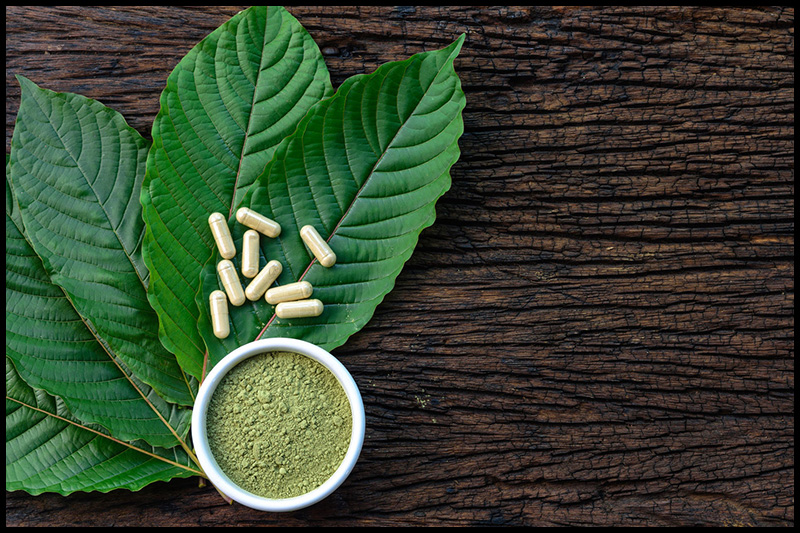Table of Contents
Last Updated on September 30, 2023 by Team Spinfuel
 Introduction to Kratom and its Uses
Introduction to Kratom and its Uses
Unlocking the Secrets of Kratom and its Controversial Connection to Opioids
Today Spinfuel diving headfirst into a topic that has been making waves in both the medical community and society as a whole: kratom. If you haven’t heard of it yet, get ready for an eye-opening journey.
Kratom, also known as Mitragyna speciosa, is a tropical evergreen tree native to Southeast Asia. Its leaves have been used for centuries by indigenous cultures for their stimulant and pain-relieving properties. But here’s where things start to get interesting (and controversial).
In recent years, kratom has gained popularity in the United States as an alternative treatment for chronic pain, anxiety, and even opioid addiction. Yes, you read that right – some people believe this natural substance could hold the key to combating our nation’s devastating opioid crisis.
But hold on just a minute! Not everyone is convinced about kratom’s potential benefits. In fact, there are those who argue that it poses significant risks and should be classified as an illegal drug.
So where does the FDA stand on this hotly debated issue? Let’s dig deeper into their stance on kratom and its alleged connection with opioids. Buckle up – this ride is about to get intense!
The Controversy Surrounding Kratom
Kratom, a tropical tree native to Southeast Asia, has been the subject of intense debate and controversy in recent years. Some hail it as a natural remedy for pain relief and opioid addiction, while others view it as a dangerous drug with potential risks.
Advocates argue that kratom’s active compounds can alleviate chronic pain without the addictive properties commonly associated with opioids. They claim that it can also help individuals wean off other substances by reducing withdrawal symptoms.
However, critics point to numerous reports of adverse effects and even deaths linked to kratom use. Concerns have been raised about its potential for abuse, addiction, and dependence. Additionally, there is limited scientific research on kratom’s safety and efficacy.
The lack of regulation surrounding this herbal supplement adds another layer of complexity to the controversy. Without clear guidelines or standards in place, consumers may be at risk of consuming contaminated or adulterated products.
While some states have banned kratom outright due to these concerns, others have taken a more cautious approach by implementing regulations or waiting for further research before making any decisions.
As the debate rages on, it remains crucial for policymakers and researchers to gather more evidence regarding kratom’s benefits and risks. This will enable informed decisions about its potential role in addressing opioid addiction and providing alternative treatment options for those in need.
FDA’s Position on Kratom and Opioids
The FDA has taken a strong stance against the use of kratom as an alternative to opioids. In fact, Commissioner Scott Gottlieb went so far as to declare kratom an opioid drug. This classification comes after the FDA issued multiple warnings about the potential dangers of using kratom. As a full bore Libertarian, whether or not the feds believe Kratom is some kind of opioid is neither here nor there. We should be free to partake in anything as long as we aren’t hurting another human being.
According to the FDA, there is no reliable evidence that supports the use of kratom for any medical condition. They argue that claims about its ability to treat pain and opioid withdrawal symptoms are not backed by science. The agency also expressed concerns about kratom’s potential for abuse and addiction.
In addition, the FDA has linked kratom products to numerous cases of illness and even death. They have reported incidents involving contamination with salmonella bacteria and substances such as heavy metals, which pose serious health risks.
Despite these concerns, some proponents argue that there is insufficient research on kratom’s benefits and risks. They believe it could be a valuable tool in addressing the current opioid crisis in America.
As debates continue regarding kratom’s classification and regulation, it remains important for individuals considering its use to consult with healthcare professionals who can provide accurate information based on scientific evidence.
Evidence for and against Kratom’s Potential as an Opioid Drug
There is a growing debate surrounding the potential of kratom as an opioid drug. Some proponents argue that kratom, a tropical plant native to Southeast Asia, has properties that can effectively alleviate pain and manage opioid withdrawal symptoms. However, skeptics question the lack of scientific evidence supporting these claims.
Supporters believe that certain compounds found in kratom leaves bind to opioid receptors in the brain, producing analgesic effects similar to prescription opioids. They argue that this natural alternative could potentially offer relief for individuals suffering from chronic pain or trying to overcome addiction.
On the other hand, critics point out that there is limited research on kratom’s safety and efficacy. They highlight concerns about potential side effects such as liver damage and respiratory depression associated with high doses of kratom. Additionally, they caution against using unregulated products which may be contaminated with harmful substances.
While some studies suggest that kratom may have therapeutic potential for managing pain or aiding in opioid withdrawal, more rigorous research is needed to determine its true benefits and risks. The FDA has expressed concern over the use of kratom due to reported deaths linked to its consumption.
As this ongoing debate unfolds, it is important for healthcare professionals and policymakers alike to carefully evaluate the available evidence before making any conclusions about kratom’s place in addressing the opioid crisis. Only through comprehensive research can we gain a better understanding of whether it holds promise as an effective treatment option or if alternative methods should be pursued instead
Alternative Treatments for Opioid Addiction
When it comes to treating opioid addiction, traditional methods like medication-assisted treatment (MAT) and counseling have long been the go-to options. However, as the opioid epidemic continues to ravage communities across the United States, many individuals are seeking alternative treatments that offer a more holistic approach to recovery.
One such alternative is kratom, a plant native to Southeast Asia that has gained popularity in recent years for its potential as an opioid substitute. Advocates claim that kratom can help alleviate withdrawal symptoms and reduce cravings without the risk of overdose or dependence associated with opioids. However, critics argue that there is insufficient scientific evidence to support these claims.
Another promising alternative treatment is acupuncture. This ancient practice involves inserting thin needles into specific points on the body to stimulate healing and relieve pain. Some studies suggest that acupuncture may help reduce cravings and improve overall well-being in individuals struggling with opioid addiction.
Mindfulness-based interventions, such as meditation and yoga, have also shown promise in helping individuals overcome opioid addiction. These practices focus on cultivating present-moment awareness and self-compassion while reducing stress and promoting relaxation. Research suggests that incorporating mindfulness techniques into addiction treatment can enhance recovery outcomes.
Holistic approaches like chiropractic care, massage therapy, and nutritional counseling are also gaining recognition as valuable tools in addressing opioid addiction. These therapies aim to restore balance within the body by addressing physical imbalances caused by drug abuse while promoting overall wellness through personalized care plans.
It’s important to note that while these alternative treatments hold promise for some individuals struggling with opioid addiction, they may not be suitable or effective for everyone. It’s crucial for those seeking alternatives to work closely with healthcare professionals who can provide guidance based on individual needs and circumstances.
As research continues into new approaches for treating opioid addiction, it’s clear that no one-size-fits-all solution exists. By exploring alternative treatments alongside traditional methods like MAT and counseling, individuals can have a more comprehensive and personalized approach to their recovery journey.
Conclusion: The Future of Kratom and Opioids in the United States
As the debate surrounding kratom and its potential as an opioid drug continues, it is clear that there is still much to be learned about this natural substance. While some individuals swear by its effectiveness in managing pain and alleviating opioid withdrawal symptoms, others remain skeptical of its safety and efficacy.
The FDA’s stance on kratom remains firm – they believe that it poses significant risks to public health due to its potential for abuse, addiction, and even death. However, many proponents argue that further research is needed to fully understand kratom’s benefits and risks.
With ongoing studies exploring alternative treatments for opioid addiction such as medication-assisted therapy (MAT) with buprenorphine or methadone, non-opioid pain management options like physical therapy or cognitive-behavioral therapy (CBT), and holistic approaches including acupuncture or mindfulness-based interventions – it seems likely that the future of opioids in the United States will involve a more comprehensive approach.
In light of recent efforts by state legislatures to ban or regulate kratom use within their jurisdictions, we can expect continued scrutiny from regulatory bodies like the FDA. It remains to be seen whether kratom will ultimately join the ranks of controlled substances or if additional research will reveal new insights into its potential benefits.
Striking a balance between addressing the current opioid crisis (that crisis being the overreaction of the federal government that affects millions of chronic pain patients, like myself, that keep adequate pain management away from the people that need them) while also providing safe alternatives for pain management is crucial. If kratom works for you and your doctor refuses to assess and assist your pain management so that you can live with a certain quality of life, then options like kratom must be considered… wisely and safely.
- John Manzione
Kratom Related Articles on Spinfuel
Using Kratom – What’s the Latest Risk/Benefit Analysis?








